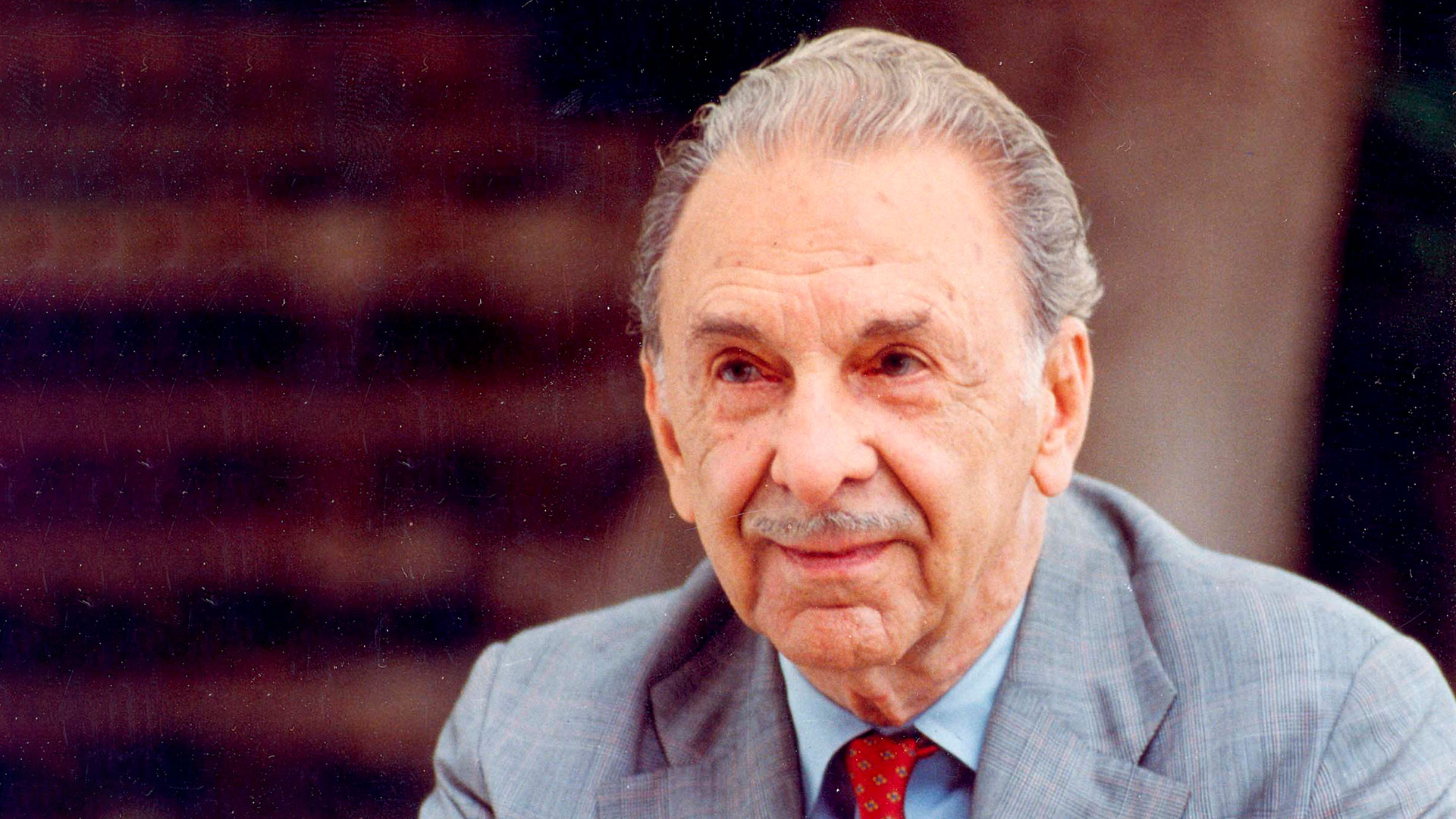Jehangir Ratanji Dadabhoy Tata, fondly known as J.R.D. Tata, was one of India’s most influential industrialists and a pioneering entrepreneur. Born into the prominent Tata family on July 29, 1904, in Paris, J.R.D. was driven by a passion for aviation and business from a young age. As the chairman of Tata Sons for over five decades, he spearheaded the expansion of the Tata Group into a diversified global conglomerate, with ventures spanning steel, aviation, chemicals, technology, and hospitality. His visionary leadership, coupled with a deep commitment to ethics and social responsibility, helped shape modern Indian industry, leaving behind a legacy of excellence, innovation, and philanthropy.
Early Life and Start of the Journ
ey
Jehangir Ratanji Dadabhoy Tata, commonly known as J.R.D. Tata, was born on July 29, 1904, in Paris to an Indian father, Ratanji Dadabhoy Tata, and a French mother, Suzanne Briere. As a child, J.R.D. was exposed to both Western and Indian cultures, which would later shape his cosmopolitan outlook. He received his early education in France, India, and England, and even though his family expected him to continue his studies at Cambridge, he chose to pursue his passion for aviation and business.
At the age of 15, he was already drawn to the skies, influenced by his close association with aviation pioneers like Louis Blériot. This early exposure to the world of aviation sparked a lifelong interest. In 1929, J.R.D. became the first licensed pilot in India, marking the beginning of a relationship with the aviation industry that would later define his legacy.
Initial Struggles and Challenges
J.R.D. Tata faced multiple challenges during the early days of his career. Despite being born into the wealthy and influential Tata family, he felt pressure to prove himself and to uphold the family’s reputation. His first major challenge was assuming leadership of Tata Sons in 1938 at the young age of 34, after the untimely death of Sir Nowroji Saklatwala. Leading an enormous conglomerate during the politically volatile pre-independence era of India was daunting.
One of his boldest ventures was founding Tata Airlines (later Air India) in 1932. At the time, India lacked any infrastructure for civil aviation, and many believed it was impossible to create a profitable airline in such an environment. J.R.D. faced skepticism from both within and outside the company, along with regulatory hurdles. In addition to facing opposition from the British colonial administration, managing finances and competing with foreign airlines were significant obstacles.
Additionally, during his early years as Tata Sons’ chairman, J.R.D. had to deal with the challenge of modernizing the group. The Tata conglomerate included diverse industries, and he had to balance tradition with innovation.
Path to Success
J.R.D. Tata’s relentless pursuit of excellence and his visionary leadership led to significant accomplishments:
1. Air India: J.R.D.’s passion for aviation was instrumental in launching Tata Airlines, which was rebranded as Air India in 1946. His leadership transformed it into one of the most prestigious airlines in the world, with a reputation for outstanding service. Even after nationalization in 1953, J.R.D. continued to play a key role in shaping Air India’s success, serving as its chairman until 1978.
2. Tata Group Expansion: Under J.R.D.'s leadership, the Tata Group expanded from 14 companies to over 100, diversifying into new areas such as chemicals, technology, and hospitality. He was instrumental in setting up several flagship enterprises, including Tata Motors, Tata Steel, Tata Consultancy Services (TCS), and Tata Chemicals.
3. Innovation and Quality: J.R.D. was a champion of industrial innovation. He founded institutions like the Tata Institute of Fundamental Research (TIFR) and Tata Memorial Hospital, which promoted scientific research and medical care. J.R.D.’s insistence on quality led to Tata Steel being awarded the Deming Prize for quality in 1958, making it the first company outside Japan to win the award.
4. Labor Welfare: J.R.D. was ahead of his time in advocating for worker welfare. He introduced several social welfare policies, including an eight-hour workday, maternity benefits, accident compensation, and provident fund schemes for workers at Tata companies.
5. Philanthropy: J.R.D. believed in giving back to society, and his philanthropic efforts are evident in the creation of the Tata Trusts, which support education, healthcare, and rural development in India. His commitment to nation-building extended beyond business, as he was deeply involved in several social initiatives aimed at improving living standards for all Indians.
Lessons to Learn from J.R.D. Tata’s Journey
1. Vision and Innovation: J.R.D. Tata demonstrated that visionaries are not limited by existing realities. He was always ahead of his time, be it in aviation, industry, or corporate governance. His example shows that innovation and a long-term outlook are crucial for lasting success.
2. Resilience in the Face of Challenges: J.R.D. faced skepticism and opposition but remained steadfast in his goals. His ability to persevere and adapt in the face of adversity is a lesson in resilience for all entrepreneurs.
3. Ethical Leadership: Integrity was a cornerstone of J.R.D. Tata’s leadership. He believed in doing business with honesty and upheld high ethical standards in all his dealings. This approach built the Tata brand as a symbol of trust and reliability.
4. Commitment to Excellence: J.R.D. instilled a culture of excellence within the Tata Group. His attention to quality and constant drive for improvement helped Tata companies earn international recognition.
5. Social Responsibility: J.R.D. understood the importance of business in societal development. His focus on worker welfare and philanthropy demonstrates that successful businesses have a responsibility to contribute positively to society.
6. Lifelong Learning and Passion: J.R.D.’s passion for learning, from aviation to business, highlights the importance of curiosity and self-improvement throughout life.
J.R.D. Tata's legacy is that of a pioneer who combined vision, ethical leadership, and a commitment to social good. His contributions to Indian industry, aviation, and society at large continue to inspire future generations.




 SEO, DIGITAL MARKETING & WEBSITE DEV.
SEO, DIGITAL MARKETING & WEBSITE DEV.



Social Plugin